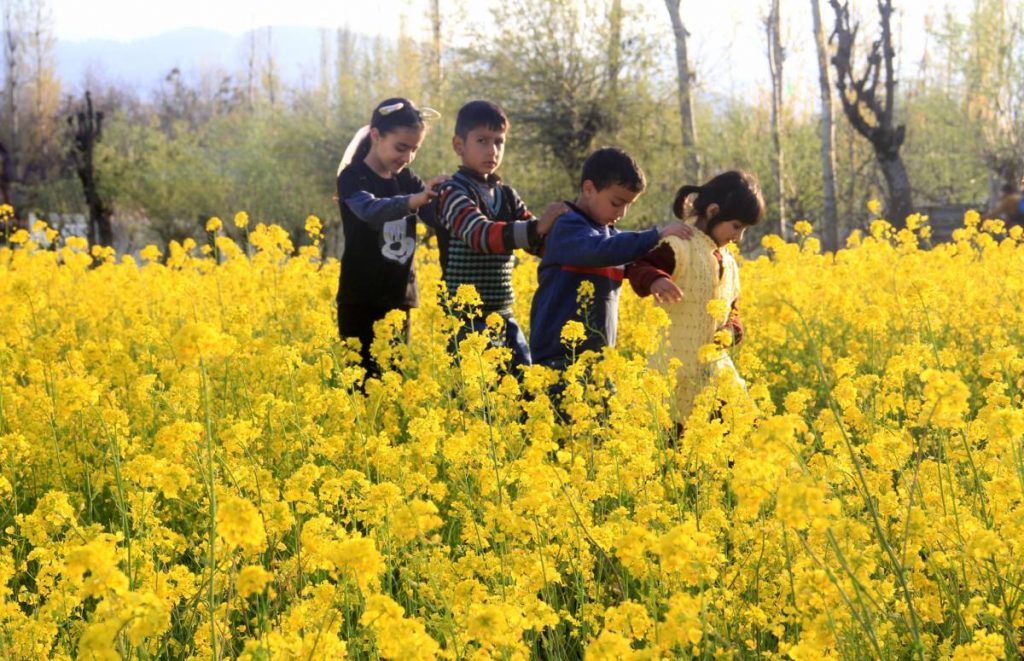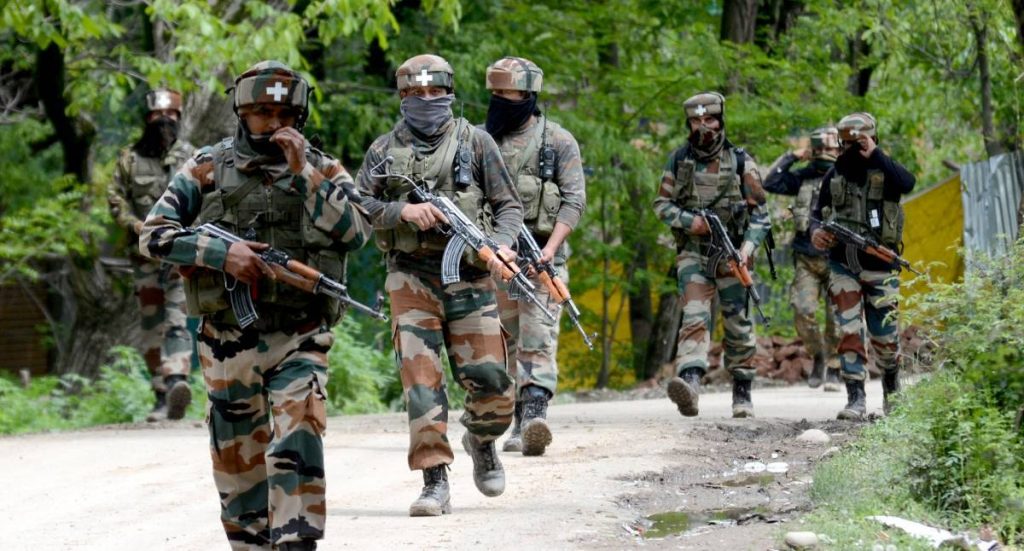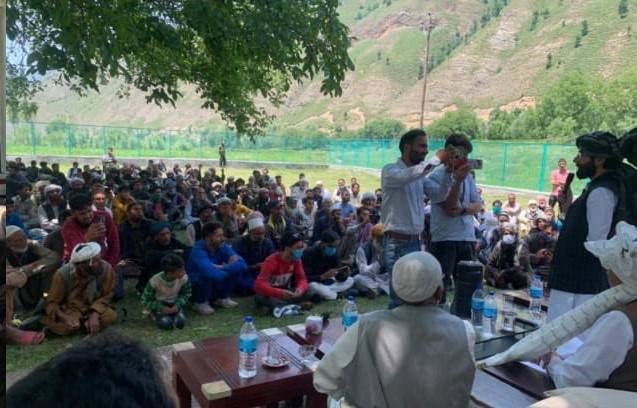Jammu & Kashmir’s transition from a corruption ridden law-less state into a thriving Union Territory makes the government employees accountable, responsive to serve the people… A special report by Qasim Ahmed Khan. Since the abrogation of the Article 370, corruption in the government offices is on decline and the employees have become more accountable in the Himalayan region
Jammu and Kashmir’s transition from a state into a Union Territory has proven the critics wrong. Corruption in the government offices is on the decline and the employees have become more accountable in the Himalayan region.

The government employees who used to enjoy impunity and had no fear of losing their jobs are on tenterhooks as the regime led by Lieutenant Governor Manoj Sinha has taken numerous people-friendly decisions to make the administration transparent and responsive.
The employees, who used to believe that they are invincible, and can do anything, are trying their best to ensure that they don’t come under the scanner as they don’t want to end up in a trouble.
After August 5, 2019—when the Centre announced its decision to scrap J&K’s special status and divided into two union territories—laws governing the conduct of employees were made more stringent. The present regime has sent a clear message “perform or perish” and the anti-national elements within the administration won’t be tolerated.
Earlier this month, J&K Government issued a circular asking the administrative secretaries to identify officers who are ineffective in work and are not fit to continue in the post held and have no utility for the purpose for which they were employed.
A fresh circular issued by J&K Chief Secretary Arun Kumar Mehta invited the attention of all administrative secretaries to an order dated October 22, 2020, issued by the Finance Department in which it had asked for a review of the performance of the government servants for the first time after his/her completion of 22 years of service or attaining 48 years of age.
The circular said: “It has been observed that the departments have not initiated any exercise for reviewing the performance of the government servants. It is impressed upon all the Administrative Secretaries to initiate the process of reviewing the performance of each government servant who has completed 48 years of age/22 years of service to identify such employees who are ineffective in work and are not fit to continue in the post held and have no utility for the purpose for which they are employed.”
Last year the J&K Government amended Article 226(2) of Jammu and Kashmir Civil Service Regulations to empower the government to retire any employee who has qualifying service of 22 years or attained 48 years of age.
Till August 5, 2019, political regimes made many attempts to disengage the deadwood but the lacunas in the service rules helped these employees to get back their jobs. But now the things have changed any employee, who shrieks work or tries to support the secessionist activities can show the exit door.
Anti-graft Campaign
The process to make the J&K administration transparent commenced soon after the Bharatiya Janata Party (BJP) pulled out from Peoples Democratic Party (PDP) led coalition government in J&K in the year 2018.
In October 2018, the then government led by then J&K Governor of the erstwhile princely state, Satya Pal Malik gave its formal sanction to establish Jammu and Kashmir’s maiden “Anti-Corruption Bureau,” with an aim to tackle and eradicate corruption in J&K in a more effective and meaningful manner.
“In exercise of the powers conferred by sub-section (1) of section 10 of the Prevention of Corruption Act, Samvat, 2006, (Act No. X111 of 2006), the Government hereby establishes a Bureau under the title of Anti Corruption Bureau, for investigation of offences, under the said Act,” read an official notification from General Administration Department, issued vide SRO 486.
Amendments in the Prevention of Corruption Act Samvat, 2006 and Jammu and Kashmir State Vigilance Commission Act, 2011 were approved to give the Anti-Corruption Bureau more teeth to deal with complaints of corruption and take these to their logical end.
After J&K’s transition into a Union Territory, the ACB became more active and vibrant. In 2020 the ACB registered 17 cases against politicians and bureaucrats.

The ACB also registered a case against officers of Jammu and Kashmir Bank into illegal appointments scam in the premiere financial institution of the Union Territory.
A case was also registered against Chairman J&K Co-operative Bank and others for sanctioning loans in favour of non-existent co-operative society. The anti-graft has also registered a case against the former chairman of the bank for allegedly misusing his position.
Cases were registered against former Director Archives and Archaeology Department, former Directors of Rural Development Department Jammu for allegedly misusing their official positions and causing loss to the state exchequer.
The anti-graft body has also nailed a former Managing Director of JAKFED.
Similarly, a case was registered against an official of Srinagar Municipal Corporation for allowing illegal residential commercial constructions in Rajbagh and Gogji Bagh.
CBI’s Role in J&K

After the applicability of the Jammu and Kashmir Re-organisation Act 2019, the Central Bureau of Investigation was empowered to register cases against government employees without any prior permission from the UT administration.

“The CBI could register cases in erstwhile State of Jammu and Kashmir but with a rider that the investigating agency had to take consent from the State Government for doing so but that rider has now has been removed,” Union Minister of State in Prime Minister’s Office, Dr Jitendra Singh had informed the Parliament in December 2019.
Central Prevention of Corruption Act became applicable in J&K from November 1, 2019. With this, all government employees in the two Union Territories came within the jurisdiction of CBI. The law emphasizes on completion of trials in graft cases within two years.
Provisions of the Central Act relating to attachment and forfeiture of property are also stringent.
Prior to August 5, 2019, Central laws were not directly applicable to J&K State.
In December 2019, the CBI raided 17 locations across J&K in connection with the alleged involvement of two serving IAS officers and six retired Jammu and Kashmir Administrative Services (KAS) officers in arms licence scam unearthed by the J&K police CID in 2017.
It was the first CBI operation in J&K after the abrogation of Article 370 on August 5, 2019, and the bifurcation of the state into two Union Territories. The agency acted after acquiring original jurisdiction to act against corruption after the reorganisation of the state.
The CBI sleuths raided the offices and residences of the then district collectors and district magistrates of Kupwara, Baramulla, Udhampur, Kishtwar, Shopian, Rajouri, Doda and Pulwama.
On January 22, 2020, the CBI booked an official of Jammu and Kashmir Grameen Bank on charges of misappropriation of bank funds to the tune of Rs 1.33 crore by “tampering” with the computer system and documents during January 2016 and January 2020.
The CBI had registered an FIR following a written complaint. The official was booked under charges of cheating, forgery, criminal misappropriation or misconduct and abusing official position.
No room for corruption
During the past two years, anti-graft agencies have acted swiftly against the government officials, who were found involved in any sort of misappropriation.
The ACB received numerous complaints against the officials who were involved in corrupt practices. Wherever the complaints have been found genuine, the Bureau has acted. The CBI too is playing an active role in J&K and the complaints received by it are being taken serious note of.
J&K dispensation led by Lieutenant Governor Manoj Sinha has given a free hand to anti-graft agencies to act against anyone, who is involved in any sort of corruption.
The ACB has registered many new corruption cases and old cases which were dumped under the carpet stand reopened.
In absence of political interference, many big fishes were nailed in J&K. Big shots who used to think that they are above the law were questioned and grilled in the cases which were pushed on the backburner by the erstwhile regimes.
The work culture in the government offices has improved. The complaints about files remaining stuck for months together at one place have declined. The officials have realized that they are being watched and their functioning is being monitored. Officials haven’t changed, they are the same people who used to work in the political regimes but their style of functioning has witnessed a turnaround as they want to ensure that their jobs remain safe.

READ MORE: AYEENA ALTAF: 19-year-old miracle from Kashmir
READ MORE: ‘Great Kashmir firewall to prevent terror sympathisers from getting govt jobs’











